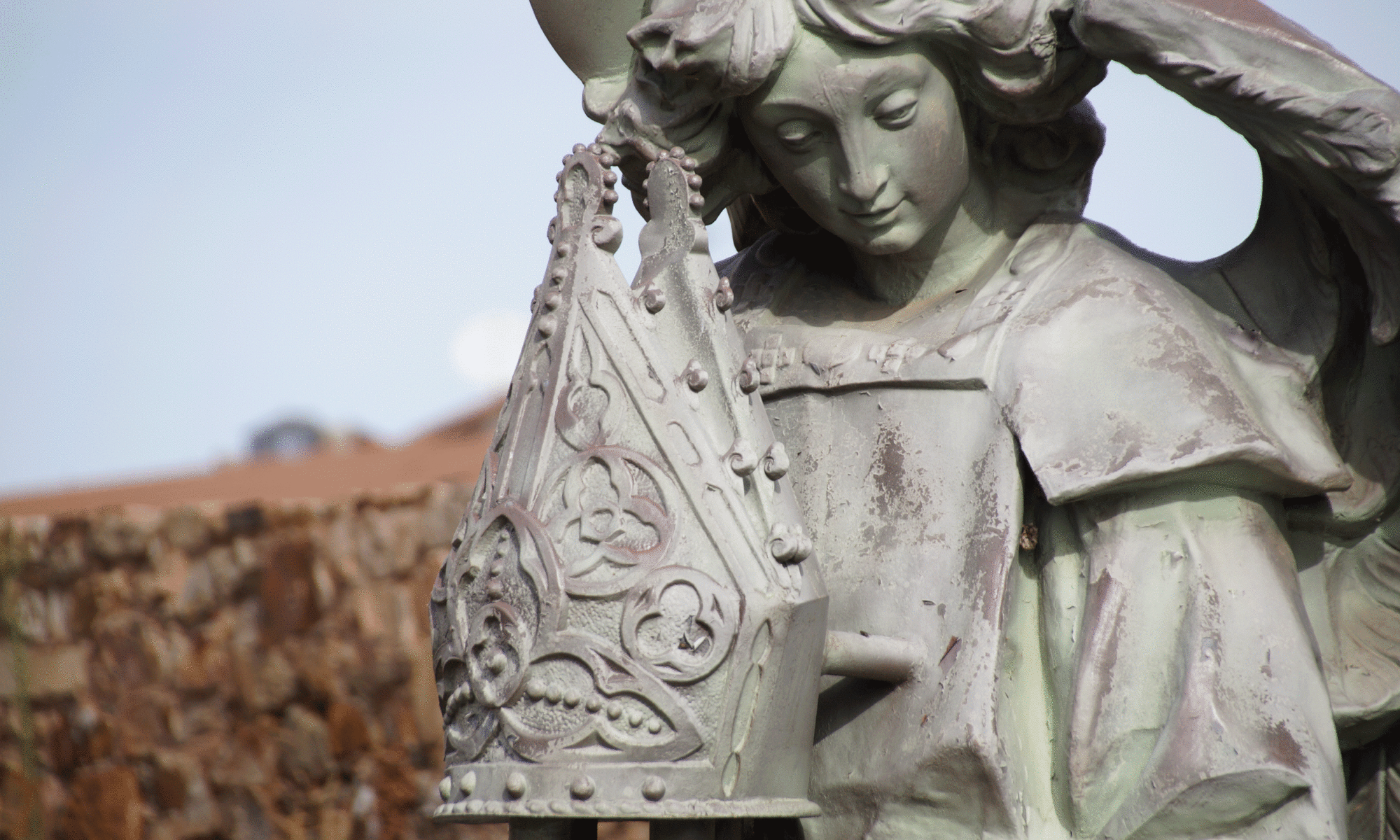At the Last Supper, on the night he was betrayed, our Savior instituted the Eucharistic sacrifice of his Body and Blood. This He did in order to perpetuate the sacrifice of the Cross throughout the ages until he should come again, and so to entrust to His beloved Spouse, the Church, a memorial of his death and resurrection: a sacrament of love, a sign of unity, a bond of charity, a Paschal banquet ‘in which Christ is consumed, the mind is filled with grace, and a pledge of future glory is given to us.
At the moment of Consecration, the bread and wine of the offering become the Body, Blood, Soul, and Divinity of our Lord and Savior Jesus Christ.
We must therefore consider the Eucharist as:
— thanksgiving and praise to the Father;
— the sacrificial memorial of Christ and his Body;
— the Real Presence of Christ by the power of His word and of His Spirit.
The Eucharist is not only a sign of the mutual love that Christians ought to have among themselves. Rather, it is a sacrament of our redemption through Christ’s death. The bread which we break is a partaking of the Body of Christ, and similarly the Chalice of blessing is a partaking of the Blood of Christ.
Those who lack a living faith, although they physically and visibly ‘press with their teeth’ (as St Augustine says) the Sacrament of the Body and Blood of Christ, nevertheless are in no way partakers of Christ’s blessings. Rather, by eating and drinking the Sacrament, they bring condemnation upon themselves.
What is the outward, visible sign in the Eucharist?
At the heart of the Eucharistic celebration are the bread and wine that, by the words of Christ and the invocation of the Holy Spirit, become Christ’s Body, Blood, Soul and Divinity.
What benefits do you receive through partaking of this Sacrament?
I receive the strengthening and refreshing of my soul by the Body and Blood of Christ, my soul is nourished with the Body and Blood of Christ. I also receive the strengthening and refreshing of the love and unity I share with fellow Christians, with whom I am united in the one body of Christ.
What is required of you when you come to receive Holy Communion?
I am to examine myself as to whether I truly repent of my sins and intend to lead the new life in Christ; whether I have a living faith in God’s mercy through Christ and remember His atoning death with a thankful heart; and whether I have shown love and forgiveness to all people.
What is expected of you when you have shared in the Eucharist?
Having been renewed in my union with Christ and his people through sharing in the Supper, I should continue to live in holiness, avoiding sin and showing love and forgiveness to all.
See also
Who May Receive the Eucharist
